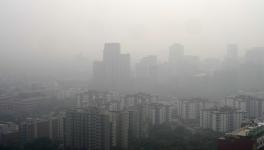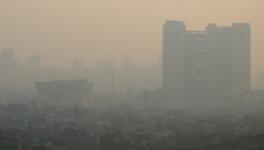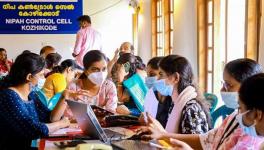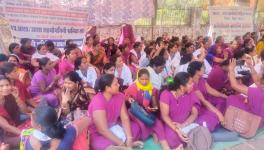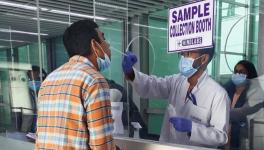Ebola Outbreak Declared as International Health Emergency by WHO
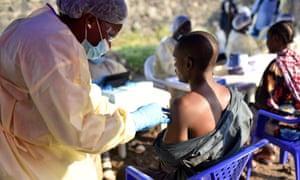
Image Courtesy : The Guardian.
The Ebola disease outbreak in Democratic Republic of Congo (DRC) has been declared as a Public Health Emergency of International Concern (PHEIC) by the World Health Organisation (WHO). In a press statement, WHO Director-General Dr. Tedros Adhanom Ghebreyesus said, “It is time for the world to take notice and redouble our efforts. We need to work together in solidarity with the DRC to end this outbreak and build a better health system. Extraordinary work has been done for almost a year under the most difficult circumstances. We all owe it to these responders -- coming from not just WHO but also government, partners and communities -- to shoulder more of the burden.”
Ebola broke out in DRC in August last year. There had been three rounds of meetings and the PHEIC declaration came out at the fourth such meeting of the International Health Regulations Emergency Committee for Ebola disease in DRC. What changed in the fourth meeting was the diagnosis of Ebola case in the city of Goma, which is an internationally connected city in DRC. The latest diagnosis came out as recently as July 14. Almost 15,000 people commute to Rwanda from Goma every day, and the city has become the epicenter of Ebola now-a-days. The recent spread of Ebola to the city of Beni shows that the disease now has a geographical coverage of almost 500 kilometres. Even after a year of the outbreak of the disease, a spread of this degree shows the inefficiency to contain the outbreak. Moreover, in Uganda as well, three members of a family of four died of Ebola last month.
The declaration is expected to have worldwide implications. First of all, it raises the outbreak’s visibility and public health officials hope that this declaration will help the international community to come together to fight the spread of the often fatal disease. During the new outbreak, Ebola has infected more than 2,500 people in the DRC of which 1,700 cases have been fatal. By declaring it as a PHEIC, WHO has placed it in the rare category which includes other dangerous diseases like the Zika epidemic of 2016, flu pandemic of 2009 and also the 2-year Ebola epidemic that killed over 11,000 people in West Africa in 2016.
Also read: Ebola Epidemic Exposes the Pathology of the Capitalist System
The declaration has also brought hope for gathering fund for the eradication of the disease. For example, for the West African epidemic, the US Congress had offered US$ 5.4 billion right after WHO’s emergency declaration.
But WHO declaration does not come without some apprehensions. An emergency might bring economic and travel restrictions on DRC. Any step of this kind in the name of curbing the outbreak will have a very negative impact on the economy of DRC. WHO officials have attempted to minimise reactions that could jeopardise both DRC’s economy and efforts to stop the outbreak. Robert Steffen, the chair of the emergency committee which recommended the PHEIC and an epidemiologist at University of Zurich, Switzerland, expressed his concerns, “This is still a regional emergency and [in] no way a global threat. It is … crucial that states do not use the PHEIC as an excuse to impose trade or travel restrictions, which would have a negative impact on the response and on the lives and livelihoods of people in the region.”
DRC Minister of Health Oly Ilunga Kalenga also expressed his concerns about the possible trade and travel imbroglio, though he has accepted the emergency declaration. He said, “The Ministry hopes that this decision is not the result of the many pressures from different stakeholder groups who wanted to use this statement as an opportunity to raise funds for humanitarian actors.” He also said such funds could come despite potentially harmful and unpredictable consequences for the affected communities that depend greatly on cross-border trade for their survival.
Get the latest reports & analysis with people's perspective on Protests, movements & deep analytical videos, discussions of the current affairs in your Telegram app. Subscribe to NewsClick's Telegram channel & get Real-Time updates on stories, as they get published on our website.














